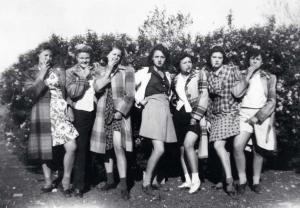Writers should read. We should read a lot. It’s true, and we all know it — even once we figure out that reading is a great way to avoid writing.
I don’t read nearly as much as I did in earlier decades. I do, however, read, usually two or three or four books at once, and that doesn’t include the manuscript or two that I’m editing.
Recently I took on a book that was way off my beaten track: Agents of Empire: Knights, Corsairs, Jesuits and Spies in the Sixteenth-Century Mediterranean World, by British historian Noel Malcolm. I was turned on to it by a copyediting job, a journalist’s ms. that combined history and memoir about the Adriatic. Almost everything about it was new to me. I had to look a lot up. Agents of Empire and its author were mentioned more than once. I requested the book from the regional library system.
It’s well researched, well written, and altogether riveting, but I have to admit: It was also challenging, because I had so little background in either the Mediterranean world or the 16th century.
That turned out to be a plus. Agents of Empire shed a lot of light on areas I was somewhat familiar with, as well as introducing me to perspectives I hadn’t considered. I’ve never really understood what happened in the Balkans after the former Yugoslavia broke up. This book about the 16th century gave me some clues.
As a result, I’ve resolved to take more deep dives into areas about which I know next to nothing.
For those interested, here’s my review of Agents of Empire on GoodReads:
Agents of Empire: Knights, Corsairs, Jesuits and Spies in the Sixteenth-Century Mediterranean World by Noel Malcolm
I was drawn to Agents of Empire because it’s about a part of the world and a period about which I know next to nothing, and it came well recommended. Wow. Professor Malcolm was already adept in the Balkan region and the early modern period when he came across a chance reference to a 16th century manuscript that seemed to have been written by an Albanian native — the earliest extant evidence of such a thing. It took him years to track it down, but after he did (IIRC it was lying unremarked in the vast libraries of the Vatican) it proved to be a sort of Rosetta stone, leading to the interlocked Bruni and Bruti families.
The Brunis and Brutis were indeed rooted in Albania, but to say they got around is an understatement. The book’s subtitle gives you an idea: in two or three generations, they produced a Knight of Malta, a Jesuit, a ship’s commander at the Battle of Lepanto (1571), a few spies, a translator at the Ottoman court, a powerbroker in Moldavia, and several merchants. Using their stories as threads, Malcolm creates a rich tapestry of place and period primarily from the perspective not of kings and emperors, popes and sultans (though they do appear in the story), but of those a couple of levels down in the socioeconomic hierarchy.
Readers who come to this book with more knowledge of the period will undoubtedly retain more of the details, but for me its great gift is its challenge to my notions of geography. Even though I know better, I fall into the habit of seeing Europe, Asia, and Africa as distinct entities. Focusing on the Mediterranean in a period when most long-distance travel was by sea undermines that habit in a big way. Commerce binds the coastal areas together; the never-ending need for raw materials, foodstuffs, and livestock binds the coasts to their inland regions. The players in Agents of Empire range as far as Spain, and a whole sequence takes place in the South of France.
Much warfare takes place on the water as well, less in pitched battles than in raids on shipping. The sea lanes were lifelines, and ships at sea were popular targets for corsairs and pirates. (Corsairs, I learn, professed some loyalty to a particular state. Pirates were entirely self-employed.) This spawned continual negotiations between municipalities for the ransoming of captives and the return of or compensation for cargo. Enslavement was a booming business. The relatively affluent and/or well connected had a good chance of being ransomed. The others were likely to wind up on the galley benches — those ships did not depend entirely on sails to get around.
Finally — I wish this book had been around when I was trying to make sense of the bloody war that followed the breakup of Yugoslavia in the 1990s. The shifting border between the Ottoman Empire and the various jurisdictions east of the Adriatic explains a lot. Warfare was frequent here too: several members of the Bruni-Bruti clan died in battle or when cities fell, and others lost their livelihoods and had to relocate. The region was multiethnic, multilingual, and multi-religious (Orthodox, Catholic, and Muslim); while the Ottoman Empire was strong enough to hold it together, it was reasonably cohesive at least on the surface, but the potential fault lines were there.
So I recommend Agents of Empire to anyone interested in either the place or the period, even if you’re starting out with little background. Prepare to feel a little overwhelmed, but trust me, it’s worth it. I recommend it to those already familiar with Mediterranean history, too, though it’s probably been on your shelves for several years now.
View all my reviews




 By Allison Coffelt
By Allison Coffelt

